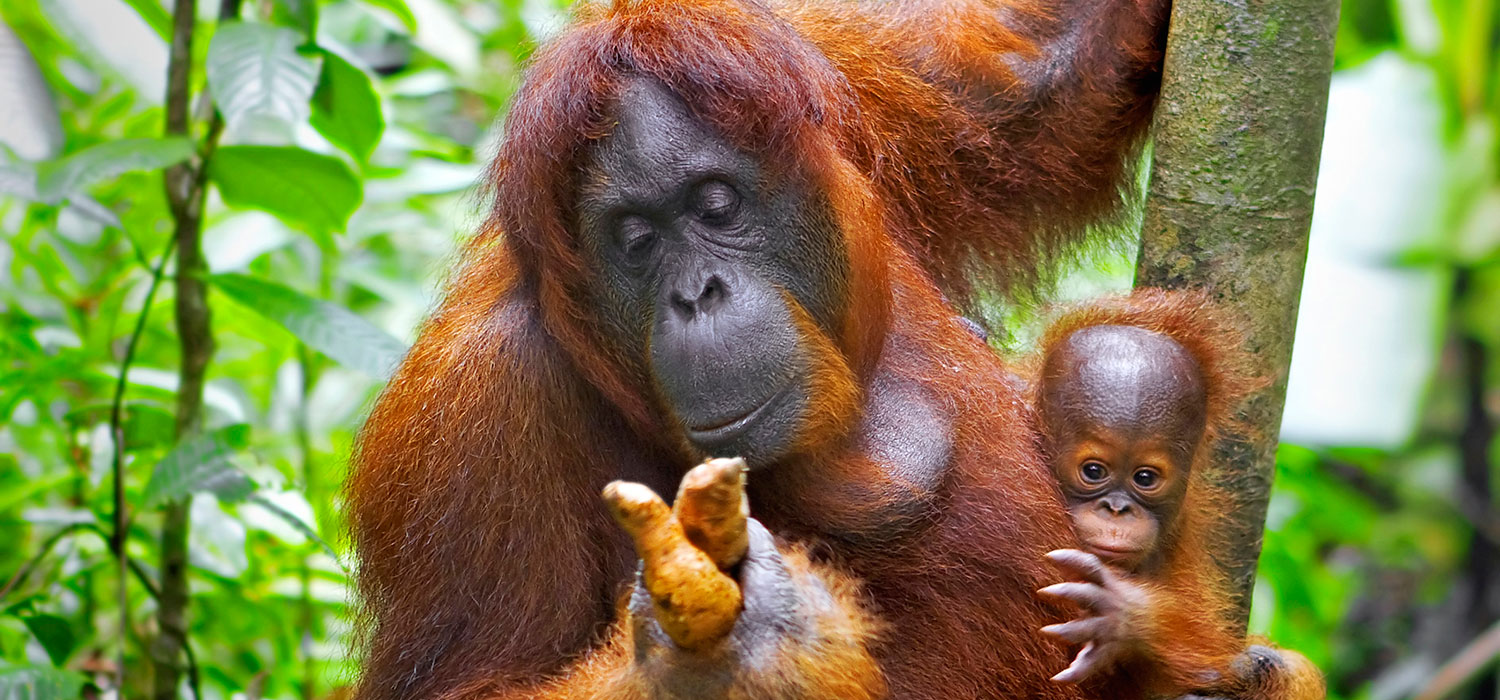
Welcome to the second article of our wildlife series. In this series, we will talk about interesting facts about endangered animals and what we can do to help to conserve their populations. In this edition, we will talk about our evolutionary cousins: orangutans.
Did you know that orangutan literally means 'person of the forest?' It is a portmanteau from two Malay/Indonesian words, i.e., 'orang' and 'hutan,' where the former means' person' while the latter means' forest.' And as the name suggests, orangutans indeed share many characteristics with us that make them so humanlike.
Just look at them. If you saw their silhouettes in the middle of the forest, you might think that they are large humans. As the largest tree-dwelling animals on Earth, adult male orangutans can reach a weight of 140kg or more. They spend over 90 percent of their time in the treetops, eating ripe fruits, young leaves, and occasionally termites or vines.
Orangutans mostly walk using all four of their limbs on the ground indeed but look closer, and you'll see that just like humans, they also make great use of their hands. They have opposable thumbs that are useful for carrying food and grabbing tree branches. Some Sumatran orangutans even use tools like sticks to get termites, ants, or bees out of tree holes. They have also been observed making 'gloves' out of leaves when handling prickly fruits or thorny branches. Yes, they are intelligent.
But that's not all. More than that, orangutans can also reason, think, and express emotions just like us--smile, whimper, cry, and what have you. This is what makes their similarities to us uncanny. If you take just a minute to watch them up close, we're pretty sure that you'll swear that they are just like us.
And they kind of are. Compared to us, orangutans share 97 percent of their DNA sequence, according to an analysis published back in 2011 by an international group of scientists. It made them one of our closest living evolutionary relatives, along with chimpanzees and, as found more recently, bonobos. So it's not weird if you feel a strong feeling of kinship when you see an orangutan.
But the irony is that human behaviors are instead the most dangerous threats to the orangutans. Poaching, habitat loss, and human-wildlife conflicts are threatening all species of orangutans in the wild. All species of orangutans are declared "critically endangered" by the IUCN, meaning that our evolutionary cousins could go extinct if we don't act fast.
So what can we do about it? Well, on our part, we support measures to reduce human-orangutan conflicts around our concession areas and continue to raise awareness to help enforce our zero-tolerance policy on harming endangered species. In our efforts, we work together with the Natural Resources Conservation Agency – East Kalimantan, Kutai National Park, and the Orangutan Foundation International. You can learn more about our conservation efforts here.
And you can play your part too. Many people think that it is impossible to help the orangutans when you live thousands of miles away. But they're wrong. By doing simple things such as reducing, reusing, and recycling, you actually helped reduce pollution, and in turn, preserve the environment and their habitat. It may not seem like much, but small things can make a huge difference. Even sharing this article on your social media accounts to raise awareness can make a real impact.
Orangutans are a keystone species. It means that they dramatically alter the environment around them, and many other creatures and plants depend on these alterations to be able to survive. As orangutans disappear, thousands of different species in fragile tropical rainforest habitats will too disappear. Eventually, these changes will also affect us, humans, who also live on the same planet. Therefore, by making an effort to help the orangutans and their habitats, we are not only saving other creatures but also protecting our future.
Please follow our social media accounts on Facebook, Instagram, and Twitter to learn more interesting facts about the wildlife and how you can help to save them. Let’s start now and make a change for our better tomorrow!


